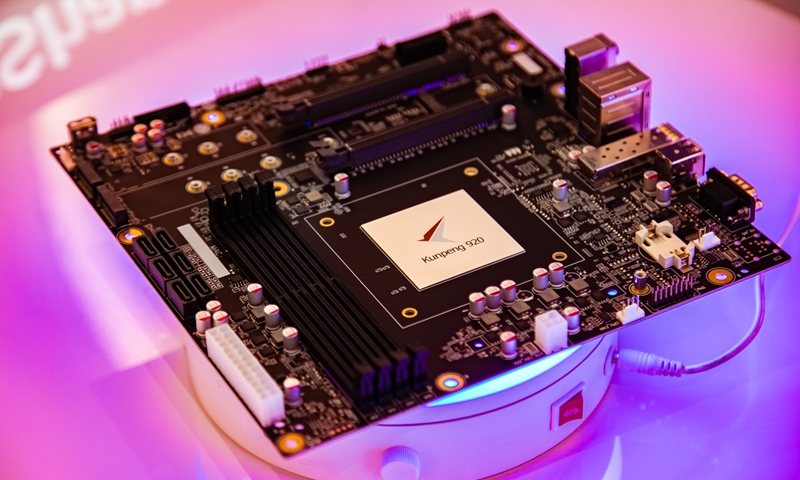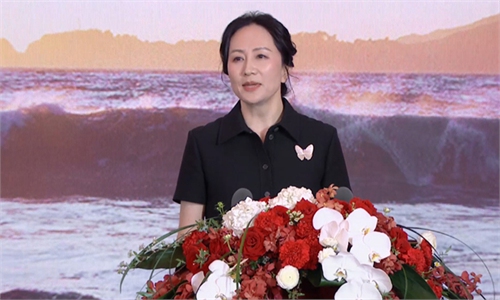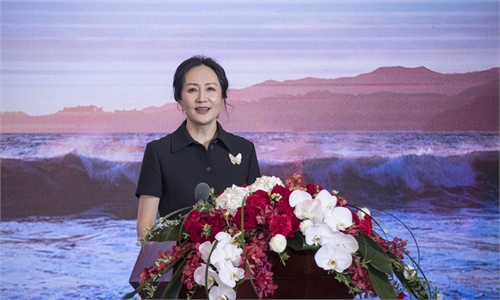Huawei seeks 'systematic breakthroughs' while under a ban from access to advanced technology: executive

Kunpeng 920 chip is showcased at Huawei's Kunpeng Ecosystem Base in Chengdu, Southwest China's Sichuan Province on January 10, 2022. Photo: VCG
A senior executive of Huawei said on Monday that the firm is now seeking "systematic breakthroughs" to improve product competitiveness while it is under a ban from access to advanced technology in the semiconductor industry, the latest response to the US' years-long sanctions.
In the global business world, repeated development of technology is not necessarily valuable, but under the current market and technology blockade, Huawei is also happy to see growing numbers of companies participating in the chip industry, Huawei rotating chairman, Guo Ping, said during the firm's annual report conference on Monday.
In 2019, the Trump administration imposed a trade ban on Huawei, citing national security, which barred the company from using Alphabet Inc's Android operating system for its new smartphones, among other critical US technology, resulting in a major setback for what was then the world's second largest smartphone seller.
"In the case that advanced technology is not available for Huawei, we are actively seeking systemic breakthroughs." Guo said, adding that solving the chip problem is a complicated and long process that requires patience.
Guo also noted that several rounds of US sanctions have created great difficulties for Huawei, which has specially affected the smartphone business because of the shortage of core components such as microchips.
"Mobile phone chips need to have strong computing power, low power consumption and small size, and there are still difficulties [for Huawei] to obtain them at the moment," said Guo.
Huawei's shipments of mobile phones in 2021 fell to 35 million units, down 81.6 percent from 2020, and its global market share dropped to 3 percent in 2021 from about 15 percent the year before, data released by Omdia showed.
Despite the headwinds, Huawei's 2021 net profit was 113.7 billion yuan ($17.8 billion), up 75.9 percent. Revenue reached 636.8 billion yuan ($99.97 billion), down 28.6 percent year-on-year.
"For Huawei in 2021, we may have perhaps passed through the black zone of this catastrophe," Huawei's Chief Financial Officer, Meng Wanzhou, said at press conference.
Key areas also saw breakthroughs like the HarmonyOS, the substitute for Google's GMS services, used in over 220 million Huawei sets as of 2021 becoming the world's fastest growing OS for mobile devices.



